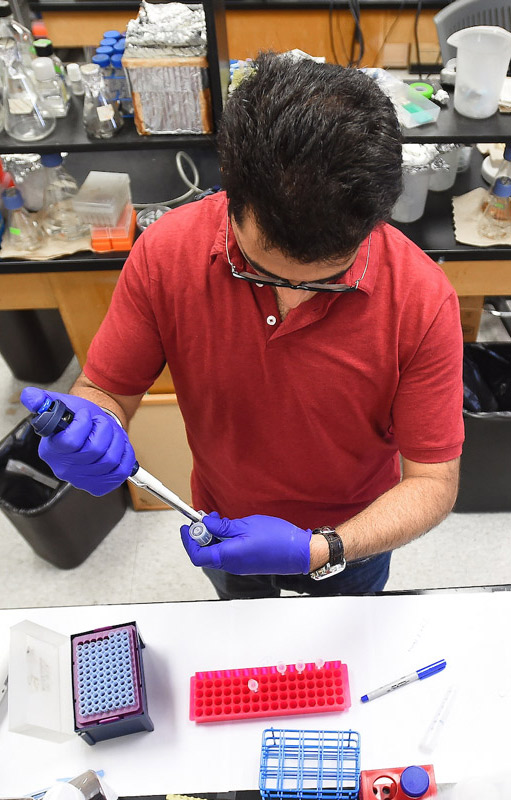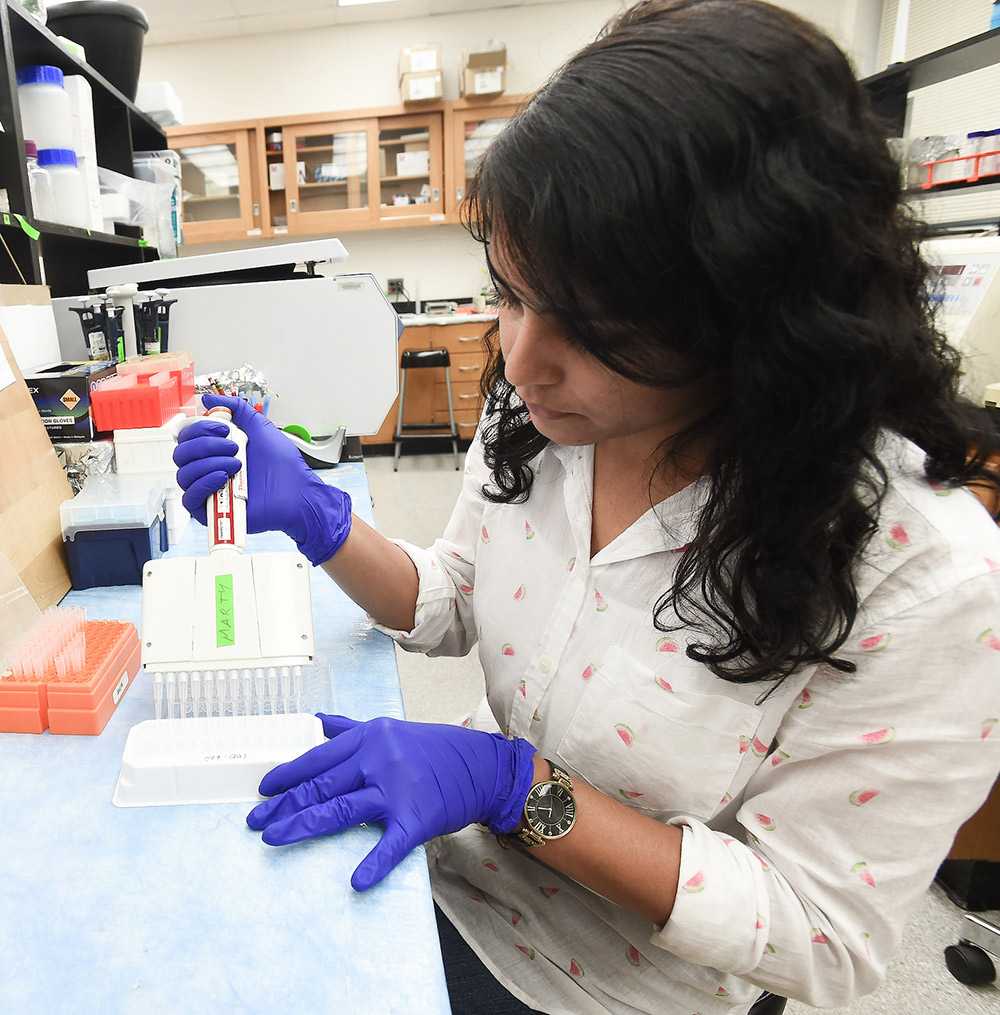
Hadiar Rahman knew exactly what he was looking for when he was applying for doctoral programs in biology.
Though he grew up and studied in Bangladesh, Rahman was familiar with the National Institutes of Health (NIH) as one of the leading research institutions in the world.
“When I was applying, I realized Catholic University was nearby and I thought if I studied here, I might be able to take advantage of that,” Rahman said.
 Now in his sixth year of researching multidrug-resistant proteins as a doctoral student, Rahman has had ample opportunities to work with collaborators at NIH (National Cancer Institute), thanks in part to the University’s close relationship with the institute.
Now in his sixth year of researching multidrug-resistant proteins as a doctoral student, Rahman has had ample opportunities to work with collaborators at NIH (National Cancer Institute), thanks in part to the University’s close relationship with the institute.
Professor Venigalla Rao, chairman of the biology department, said experiences like Rahman’s are far from unusual for both undergraduate and graduate biology students. As of this summer, every tenured or tenure-track professor is funded by outside agencies, including NIH or the National Science Foundation. As a result, there are numerous opportunities — both on campus and at academic and research institutions across the country — for students interested in pursuing varied research topics, including cellular biology, molecular biology, microbial biology, and biotechnology.
Whatever topic they study, Rao said the research approach is two-fold. The first goal is to better understand fundamental mechanisms in biology. Secondly, researchers try to translate their findings into new biomedical and biotechnological applications.
Rao’s own research, which he has been engaged with for more than 30 years, looks at the mechanism of DNA packaging in virus capsids. He then uses this knowledge to engineer viruses that can be used for beneficial human therapies such as gene therapy or vaccines. At any given time, he has a number of undergraduate, graduate students, and post-doctoral fellows working in his lab, gaining research experience as they help get closer to that goal.
“Many of our students — undergraduates in particular — engage in short-term research, but some will end up doing research for all four years with the same faculty member,” Rao said. “That’s very useful because they can accomplish a significant amount of research and advance their career goals as well as help in the success of the research grants.”
Associate Professor Ann Corsi, who researches how specific proteins play a role in the development of certain cell types such as muscles, said undergraduates “can get involved in research from the moment they come to campus,” but that most students wait until the summer after their sophomore year.
“We’ve designed our curriculum so that students have a full-year research type of experience where their lab class allows them do some independent research inside the classroom,” said Corsi. This allows students “to attain the skills they need in order to do things like keep a good lab notebook or learn how to conduct themselves in a lab.”
class allows them do some independent research inside the classroom,” said Corsi. This allows students “to attain the skills they need in order to do things like keep a good lab notebook or learn how to conduct themselves in a lab.”
Maggie Nixon, a biology major who graduated in 2017, spent her senior year working in a lab with Corsi where she used a nematode to study a protein related to a human protein called TWIST, in order to better understand human disorders that affect proper skull and facial bone development.
“Working with Dr. Corsi in the research lab is fascinating,” said Nixon, who was interviewed during her senior year. “It’s incredible to be working on research that could prove to be clinically relevant for people.”
Professor Pamela Tuma researches how specialized human liver functions and the hepatic damage associated with alcoholic liver disease. She works closely with graduate students, who she calls “the backbone of the department.”
“They do a lot of research and that research is not confined to campus,” Tuma said. “Students really get exposed to science at the highest level. We’re internationally and nationally recognized researchers and the students are themselves internationally and nationally recognized.”
By getting involved in research projects, Rao said students learn to think critically and communicate their findings in a clear and accurate way. Many undergraduate students have presented their research at conferences regionally and abroad, won awards and research internships, and co-authored significant primary research articles. Each fall, students also have the opportunity to present their findings during the department’s annual graduate research symposium.
Rahman said he has benefited from the close partnerships and collaborations he has found within the department.
“The department is not very big, but one thing that is very good is that all of our colleagues here are very invested,” he said. “The whole department, including all the faculty and students, we collaborate with each other. It’s a very engaged community.”
“Students have a chance to interact with the faculty very closely. Every lab in the department has a weekly research group meeting in which the undergrads participate and present their own research,” Rao said. “The critical thinking and analytical skills, the problem solving skills and the communciation skills the students learn from the research experience would be invaluable for their future success.”